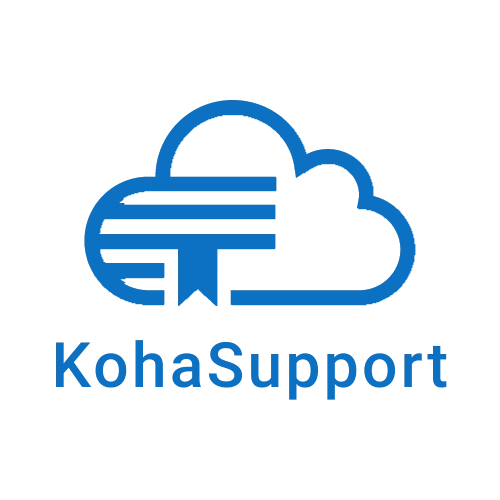Koha vs. SirsiDynix Symphony: Comparing Two Trusted Library Management Systems
Koha and SirsiDynix Symphony are both widely used Integrated Library Systems (ILS) serving academic, public, and special libraries worldwide. While Koha is an open-source solution with community-driven development, Symphony is a proprietary ILS developed by SirsiDynix, a long-established vendor in the library automation market.
Both systems offer powerful tools for cataloging, circulation, acquisitions, and reporting—but they differ in terms of licensing, customization, support models, and long-term costs. This comparison explores the key differences to help libraries determine which solution best suits their needs.
Overview
| Feature Category | Koha | Evergreen |
|---|---|---|
| Interface | Modern, user-friendly, highly customizable | Functional, admin-focused |
| Customization | High (via plugins, themes, APIs) | Moderate (more rigid, requires deep expertise) |
| Scalability | Good for all sizes; especially small-to-mid | Excellent for large and consortial systems |
| Hosting Flexibility | Self-hosted, cloud, or vendor-managed | Typically vendor- or consortium-hosted |
| Community Support | Large, global, collaborative | Strong, especially in North America |
| Cost Model | Free/open-source; multiple vendor options | Free/open-source; consortium-focused support |
1. Licensing, Cost, and Control
Koha is a truly open-source ILS, free to download, modify, and use. Libraries can host it themselves or choose from a wide range of global support vendors, giving them control over both costs and vendor relationships. There are no mandatory license fees—making Koha an ideal fit for libraries looking to stretch limited budgets.
Symphony, by contrast, is a commercial system that requires licensing fees and often additional charges for modules, support, or upgrades. While some institutions may value the predictability of vendor-managed pricing, costs can add up quickly—especially for smaller libraries.
Advantage: Koha – Lower cost of ownership and vendor independence.
2. Flexibility and Customization
Koha is highly customizable. Whether through plugins, RESTful APIs, or direct code-level modifications, libraries can shape Koha to suit unique workflows or integrate it with digital repositories, authentication systems, and discovery tools. This flexibility empowers innovation and future-proofing.
Symphony offers powerful functionality but less flexibility. Customizations often require vendor coordination, and extending functionality may involve purchasing companion products in the SirsiDynix ecosystem (e.g., BLUEcloud).
Advantage: Koha – Greater adaptability to evolving needs.
3. User Experience and Interface
Koha features a clean, modern, web-based interface for both staff and patrons. Its OPAC and staff dashboard are responsive and easy to theme, making it accessible and intuitive even for libraries with minimal training resources.
Symphony provides a solid, if more traditional, interface. Staff clients are functional but may require more training. Enhancements like BLUEcloud improve the experience but often involve additional products and costs.
Advantage: Koha – More accessible and user-friendly out of the box.
4. Features and Interoperability
Both systems offer strong core functionality in cataloging, circulation, acquisitions, and reporting.
Koha stands out for its interoperability. It plays well with open standards, third-party tools, and discovery platforms. Libraries can extend its capabilities freely using APIs or community-developed modules.
Symphony works best within its own ecosystem. While it integrates well with other SirsiDynix tools, extending beyond that typically requires vendor approval or service agreements.
Advantage: Koha – Open by design, with wider integration potential.
5. Support and Community
Koha has a large, global open-source community contributing to its continuous improvement. Libraries benefit from diverse support options, shared resources, and peer collaboration. Updates are frequent, and development is transparent.
Symphony support is provided directly by SirsiDynix, with clear escalation paths and account management. This centralized model can simplify support for libraries that prefer a single point of contact—but lacks the freedom and variety Koha users enjoy.
Advantage: Koha – Broader community engagement and support flexibility.
6. Data Sovereignty
Koha allows full data ownership. Libraries retain control over where and how their data is stored, accessed, and shared. This is particularly important for institutions with strict privacy or data sovereignty requirements.
Symphony typically hosts data in SirsiDynix-managed infrastructure. While secure, this model can limit direct access or customization depending on contract terms.
Advantage: Koha – Total transparency and control over data.
Summary
| Criteria | Koha | SirsiDynix Symphony |
|---|---|---|
| Licensing Model | Open source, no license fees | Proprietary, requires paid licenses |
| Best For | Libraries seeking autonomy, flexibility, and affordability | Libraries preferring a managed commercial platform |
| Customization | High – open codebase and plugin architecture | Moderate – changes often require vendor coordination |
| User Interface | Modern, responsive, easy to use | Functional, enhanced via BLUEcloud (at added cost) |
| Hosting Options | Self-hosted, cloud-based, or supported by various vendors | Primarily vendor-hosted or on-premises via SirsiDynix |
| Integration and APIs | Strong third-party integration via open standards | Best within SirsiDynix ecosystem |
| Community & Support | Global open-source community + multiple commercial support providers | Single vendor support with defined SLAs |
| Data Ownership | Full control and transparency | Vendor-managed, subject to contract terms |
| Cost Profile | Low total cost of ownership | Higher cost; includes software, support, and add-ons |
Final Thoughts
Koha offers libraries unparalleled control, adaptability, and cost-effectiveness—making it especially attractive to institutions that value flexibility, open standards, and transparency. SirsiDynix Symphony remains a strong choice for libraries that prefer centralized support, long-term vendor partnerships, and a consistent product ecosystem.
For libraries weighing independence and innovation against vendor-managed stability, Koha stands out as a smart, future-ready choice.
